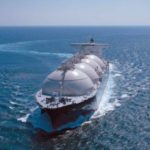Shipping Fuels, Already a Major Component of Shipping’s Operating Costs, Will Only Increase in the Future
 Shipping fuels will become a critical component of shipping’s costs in the near future, as the industry is heading towards decarbonization. In its latest weekly report, shipbroker Intermodal noted that “following the 3rd Decarbonizing Shipping Forum, held in Hamburg on June 2022, there has been a meaningful resurgence of discussions within the shipping industry around the topic. In order to meet internationally agreed levels of mitigation, shipping industry must undertake fundamental changes in its emissions pathway, while stakeholders need to implement effective solutions to reduce their emissions in a cost-effective and feasible way. Cost considerations, which typically represent the main part of the decision process, operational and market factors need to be addressed”.
Shipping fuels will become a critical component of shipping’s costs in the near future, as the industry is heading towards decarbonization. In its latest weekly report, shipbroker Intermodal noted that “following the 3rd Decarbonizing Shipping Forum, held in Hamburg on June 2022, there has been a meaningful resurgence of discussions within the shipping industry around the topic. In order to meet internationally agreed levels of mitigation, shipping industry must undertake fundamental changes in its emissions pathway, while stakeholders need to implement effective solutions to reduce their emissions in a cost-effective and feasible way. Cost considerations, which typically represent the main part of the decision process, operational and market factors need to be addressed”.
According to Intermodal’s Research Analyst, Ms. Chara Georgousi, “adopting an economic and sustainable fuel solution to substitute fossil fuels is a complex process, facing headwinds from a current absence of targeted policies, such as renewable fuel mandate and carbon taxation. Fuel price is a shaping factor for change in the industry as bunkers, which represent approx. 47% of a vessel’s operating cost, will significantly increase under IMO’s regulations. Therefore, to continue running on cheaper fossil fuels, many vessels are being built or fitted with scrubbers, which equal 4.26% of the world fleet in 2022, according to our data. This figure equals to 4,845 vessels, according to DNV, with most of them carrying open type scrubbers and 3,296 of them being retrofitted, while only 1,549 of them fitted at newbuilding stage”.
Ms. Georgousi added that “in terms of ship type most of them are bulkers (1,659), followed by containers (1,121) and chemical/oil tankers (573). In terms of alternative fuels, LNG currently seems the only green fuel that is viable commercially for the deep-sea segment in the short term, with a 0.74% total LNG capable fleet in 2022. In total, there are 817 LNG capable ships in operation, while 743 are currently on order, according to our data. Most of them are oil tankers (39 in operation and 35 on order), containerships (36 in operation and a massive number of 169 on order) and bulkers (13 in operation and 49 on order). However, despite low emissions, it will not be able to meet IMO’s regulations in the long term and will only represent a transitory fuel. Regarding methanol and ammonia, these are scarcely in use, with only 56 methanol fueled vessels and very few ammonia fueled vessels in operation, of which 6 are tankers. Port infrastructure is currently under development with dominant initiatives from Vopak Terminal in Rotterdam for methanol and port of Gothenburg in Sweden which is establishing a value chain aiming at becoming the primary methanol bunkering hub in Northern Europe and the most recent development of Yara terminal in Oslo, the world’s first ammonia fuel bunker network in Scandinavia. On the other hand, the use of biofuels still accounts for a small percentage of the world fleet. Owners are still skeptical towards the use of biofuels in the short term, as the additional cost for the fuel transition paired with a 10% premium on bunker cost, amidst a lack of well-established supply chain and infrastructures, will result in higher freights under an unclear framework on how this extra cost will be divided between involved maritime stakeholders. According to our data, there are currently 8 tankers, 9 bulkers and 10 containers in operation using biofuels”.
“From a technological point of view, fitting vessels with scrubbers or converting engines to run on alternative or biofuels is a costly and time-consuming process. For instance, to run on LNG, vessels require two to three times the volume of fuel oil tanks. Engines burning ammonia or hydrogen are still under testing & development phase and builders will need more time on top of the various safety concerns associated with the use of these fuels. Regarding the electrification of vessels, batteries are not yet adequately developed and will need to become less heavy and space-consuming, as well as more efficient to support optimal ship operation. In the meantime, there are only 118 cold ironing facilities in operation and 47 more being decided for future operation globally (according to DNV), with most of them in Northern Europe and very few of them in USA/Canada and China for a total number of 466 battery-powered vessels in operation, 50% of them are hybrid type and only 23% of them pure electric, and 188 vessels on order at the moment”, Intermodal’s analyst concluded.
Nikos Roussanoglou, Hellenic Shipping News Worldwide

 Hellenic Shipping News Worldwide Hellenic Shipping News Worldwide, Online Daily Newspaper on Hellenic and International Shipping
Hellenic Shipping News Worldwide Hellenic Shipping News Worldwide, Online Daily Newspaper on Hellenic and International Shipping
























 PG-Software
PG-Software